Real-Time GPS Tracking and Telematics
GPS (Global Positioning System) trackers are compact electronic devices that deliver continuous, real-time location updates, visually represented on an interactive map. These updates are easily accessible through web platforms or mobile apps, allowing users to monitor and track movement with seamless, on-the-go convenience.
Users can track the precise location of assets, vehicles, or individuals in real time, providing constant, up-to-the-minute visibility. This level of transparency improves situational awareness but also empowers users to make faster, more informed decisions, enhancing operational efficiency and responsiveness.
GPS trackers later into comprehensive telematics systems as a key development in the fields of vehicle management, logistics, and personal tracking. GPS trackers originally provided a basic function—locating and tracking an object or vehicle using satellite signals—but over time, their capabilities have expanded significantly. This transformation into telematics has resulted in integrated systems that collect, transmit, and analyze a wide range of data from various sensors installed in vehicles or assets.
Telematics
Telematics refers to the integration of telecommunications and information technology to provide real-time data transmission and analysis, typically in vehicles or mobile devices. It combines GPS technology, wireless communication, and on-board sensors to gather, transmit, and analyze data for various applications, most notably in the fields of transportation, logistics, automotive services, and fleet management.
As technology improved, telematics systems evolved beyond basic tracking and diagnostics. Telematics represents a more comprehensive approach that combines telecommunication (the transmission of data) with informatics (the collection, processing, and analysis of data).
Unlike earlier GPS trackers, which were often only activated periodically, modern telematics systems can transmit data continuously in real-time, allowing for immediate insights and feedback.
Data is not just collected, but processed and analyzed. This allows fleet managers, business owners, and drivers to make decisions based on real-time performance metrics, predictive maintenance, and even historical data analysis.
GPS data is now integrated with traffic data and map services to help optimize routes, reduce travel time, and avoid delays.
Advanced GPS telematics can automatically diagnose vehicle issues and send alerts to drivers or fleet managers before problems become serious, reducing downtime.
Benefits
Enhanced Security and Theft Prevention
GPS tracking helps to prevent theft of vehicles, assets, or personal items by providing real-time location tracking and tamper alerts. In case of theft, GPS devices can help authorities recover stolen items quickly.
Improved Fleet Management and Efficiency
Businesses with a fleet of vehicles can use GPS tracking to monitor driver behavior, optimize routes, reduce fuel consumption, and ensure timely deliveries. It also helps in managing driver work hours and compliance with regulations like the Hours of Service (HOS) rule for commercial drivers.
Cost Savings
By improving route optimization, reducing fuel consumption, preventing theft, and ensuring more efficient asset management, GPS tracking systems can lead to significant cost savings for businesses. They can also help identify unnecessary vehicle idling, speeding, or maintenance issues.
Increased Productivity
Real-Time Monitoring and Decision Making
Real-time location data allows businesses and individuals to make better, more informed decisions. For example, if a delivery is running late, a customer service team can proactively inform the customer and suggest an updated delivery window.
Improved Customer Satisfaction
Personal Safety
Environmental Impact
By reducing fuel consumption through optimized routing and driving behavior, GPS tracking can help companies decrease their carbon footprint. This is especially beneficial for logistics companies and businesses with large fleets.
Asset and Inventory Management
GPS trackers allow businesses to monitor and manage high-value assets (e.g., construction equipment, trailers, containers) in real time. This can reduce losses and streamline asset tracking, improving operational efficiency and reducing asset downtime.
Legal and Regulatory Compliance
Many industries require companies to comply with legal regulations concerning driver hours, vehicle inspections, and safety protocols. GPS trackers help businesses meet these requirements by providing real-time data for compliance reporting, reducing the risk of penalties.

